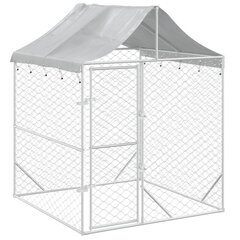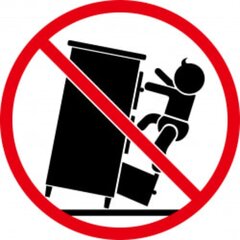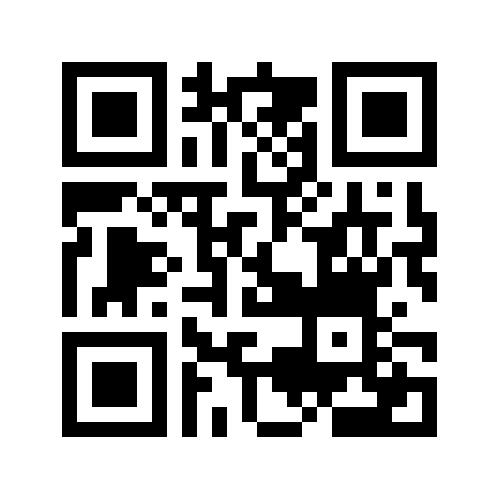-
Духи, косметика
- Тушь, средства для роста ресниц, тени для век, карандаши для глаз
- Пудры, базы под макияж
- Помады, бальзамы, блеск для губ
- Лаки для ногтей, укрепители для ногтей
- Средства для маникюра и педикюра
- Косметички, косметические зеркала
- Кисти для макияжа, спонжи
- Карандаши, краска для бровей
- Бронзеры (бронзаторы), румяна
- Накладные ресницы, керлеры
- Кремы для лица
- Аппараты для ухода за лицом
- Сыворотки для лица, масла
- Маски для лица, патчи для глаз
- Сыворотки, кремы для век
- Массажеры для лица, инструменты для чистки лица
-
Мебель и домашний интерьер
- Стулья для кухни и столовой
- Кухонные шкафчики
- Кухонные и обеденные столы
- Комплектующие для кухонной мебели
- Кухонные гарнитуры
- Комплекты мебели для столовой
- Столешницы для кухни
- Коллекции кухонной мебели
-
Одежда, обувь и аксессуары
-
Товары для детей и младенцев
- Для ухода за младенцем
- Приспособления для кормления
- Товары для мам
- Детские коляски и аксессуары
- Автокресла и аксессуары
- Детское питание
- Манежи для детей
- Шезлонги и качели
- Слинги, эргорюкзаки
- Ходунки
- Матрасы для новорожденных
- Отпечатки для младенцев
- Детские кроватки
- Подгузники
- Детское постельное бельё
- Приданое для новорожденного
- Товары для безопасности детей дома
- Одежда для новорождённых
-
Бытовая техника и электроника
- Кабели и провода
- Кронштейны и крепления для телевизоров
- Телевизоры
- Аксессуары для Smart TV
- TV - антенны
- Мультимедийные проигрыватели
- ТВ-приемники, тюнеры
- Электрочайники
- Кофемашины
- Фильтры для воды
- Фритюрницы
- Блендеры, измельчители
- Особенные приборы для приготовления пищи
- Кухонные весы
- Тостеры
- Вафельницы и электрические блинницы
- Коктейльницы
- Кухонные комбайны
- Проращиватели, лампы для растений
- Миксеры
- Бутербродницы
- Мультиварки
- Кофемолки
- Вакууматоры
- Соковыжималки
- Аппараты для газирования воды
- Ломтерезки, точилки для ножей
- Мясорубки
- Электрогрили, маринаторы
- Сушилки для фруктов
- Аппараты для воды
- Хлебопечки
- Варочные поверхности
- Микроволновые печи
- Вытяжки на кухню
- Мини-духовки
- Посудомоечные машины
- Духовки
- Электрические плитки
- Газовые плиты
- Измельчитель пищевых отходов
- Электрические зубные щетки
- Массажеры
- Насадки для электрических зубных щеток
- Приборы для укладки и выпрямления волос
- Электробритвы
- Тонометры
- Машинки для стрижки волос
- Аппараты для маникюра и педикюра
- Фены
- Эпиляторы
- Согревающие приборы
- Ирригаторы
- Приборы для ухода за лицом
- Ингаляторы
- Термометры
- Массажные ванночки
-
Сантехника, ремонт, вентиляция
- Механические инструменты
- Электроинструменты
- Ящики для инструментов, держатели
- Стеллажи, полки
- Стремянки
- Инструменты крепления
- Лопаты для снега, толкатели
- Снегоуборщики
- Металлодетекторы
- Платформенные весы
- Модульные стеллажи
- Моющее оборудование высокого давления
- Обои
- Фотообои
- Элементы декора для стен, потолка
- Самоклеящиеся пленки
- Самоклеющаяся пленка по спецзаказу
- Настенная плитка
- Декоративный камень
- Детские фотообои
- Дверные ручки
- Межкомнатные двери
- Дверные замки
- Дверные петли и другие принадлежности
- Пластиковые окна
- Козырьки для дверей
- Ревизионные дверцы, принадлежности
- Уличные двери
- Кровельные покрытия
- Мансардные окна
- Батарейки
- Выключатели, розетки
- Фонарики, прожекторы
- Светодиодные ленты
- Удлинители
- Лампочки
- Зарядные устройства для элементов питания
- Комплектующие для солнечных электростанций
- Источники питания
- Сенсорика
- Текстильные провода и клеммные колодки
-
Кухонные товары, товары для домашнего хозяйства
- Столовые и кухонные приборы
- Посуда, тарелки, обеденные сервизы
- Стаканы, фужеры, кувшины
- Cковородки
- Кастрюли, скороварки
- Формы, посуда для выпечки
- Посуда для хранения еды
- Ножи и аксессуары для них
- Термосы, термокружки
- Чайники, кофейники
- Столовые приборы
- Емкости для специй, измельчители
- Специи, наборы специй
- Разделочная доска
- Посуда и принадлежности для консервирования
- Фляги, бутылки для воды
- Праздничные декорации и посуда
- Фильтры для воды
-
Компьютерная техника
- Аксессуары для корпусов
- Внутренние жёсткие диски (HDD, SSD, Hybrid)
- Оперативная память (RAM)
- Корпуса
- Материнские платы
- Видеокарты
- Компьютерные вентиляторы
- Материнские платы (PSU)
- Кулеры для процессоров
- Регуляторы
- Процессоры (CPU)
- Аксессуары для компонентов
- Термопасты
- Оптические устройства
- Звуковые карты
- Водяное охлаждение - комплекты
- Кулеры для видеокарт
- Водяное охлаждение - аксессуары
- ТВ-тюнеры, FM, видеокарты
-
Спорт, досуг, туризм
- Туристический инвентарь
- Фляги для воды
- Туристические, походные рюкзаки
- Палатки
- Надувные матрасы и мебель
- Туристическая мебель
- Спальные мешки
- Туристические матрасы и коврики
- Альпинистское снаряжение
- Средства для ухода за обувью, одеждой и туристическим инвентарём
- Биотуалет
- Средства защиты от комаров
- Принадлежности для автотуризма
- Товары для гимнастики и фитнеса
- Рюкзаки и сумки
- Водный спорт
- Аксессуары для массажа
- Футбольный мяч.
- Ортезы и бандажи
- Боевые искусства
- Ракеточный спорт
- Баскетбол
- Палки для ходьбы
- Дартс
- Шагомеры, хронометры, мониторы сердечного ритма
- Сетевой
- Товары для балета и гимнастики
- Диск-гольф
- Гольф
- Насосы и иглы для мячей
- Товары для игры в бейсбол
- Гандбол
- Флорбол и хоккей на траве
- Верховая езда
- Мячи
- Велосипеды, ролики, скейтборды
- Тренажеры, товары для фитнеса
- Игровые столы
- Грузы, гантели, грифы
- Аминокислоты
- Углеводы
- Протеин
- Батончики
- Другие пищевые добавки и препараты
- Энергетики
- Функциональные продукты
- Глютамин
- Креатин
- L-карнитин
- Пищевые добавки и препараты для набора массы
- Добавки и препараты для суставов
- Добавки для восстановления
- Жиросжигатели
- Добавки и препараты для похудения
- Стимуляторы тестостерона
- Витамины
-
Мобильные телефоны, Фото и Видео
- Чехлы для телефонов
- Мобильные телефоны
- Защитные пленки для телефонов
- Зарядные устройства для телефонов
- Зарядные устройства Power bank
- Кабели для телефонов
- Держатели для телефонов
- Аксессуары для телефонов
- Карты памяти для телефонов
- Аккумуляторы для телефонов
- Моноподы для селфи («Selfie sticks»)
- Запчасти для телефонов и инструменты для их ремонта
- Bluetooth гарнитура
- Наушники
- Аксессуары для фотоаппаратов
- Фотоаппараты
- Осветительное оборудование для фотосъемок
- Фотоаппараты мгновенной печати
- Штативы для фотоаппаратов
- Карты памяти для фотоаппаратов, камер
- Футляры, чехлы для фотоаппаратов и объективов
- Аккумуляторы, батарейки
- Объективы
- Зарядные устройства для фотоаппаратов
- Фильтр
- Заряжаемые аккумуляторы
-
Автотовары
-
Товары для животных
- Сухой корм для собак
- Средства по уходу за животными
- Лежаки, домики
- Переноски, сумки
- Миски, ящики для корма
- Консервы для собак
- Лакомства для собак
- Игрушки для собак
- Ошейники, подтяжки для собак
- Одежда для собак
- Поводки для собак
- Косметические средства для животных
- Принадлежности в дорогу
- Средства для дрессировки собак
- Пищевые добавки и анти-паразитные товары
- Сухой корм для кошек
- Кошачьи консервы
- Наполнители для кошачьих туалетов
- Когтеточки
- Игрушки для кошек
- Туалеты для кошек
- Лакомства для котов
- Поводки и ошейники для кошек
- Витамины, пищевые добавки и товары от паразитов
- Лежаки, домики
- Переноски, сумки
- Миски, ящики для корма
- Косметические средства для кошек
- Средства по уходу за кошками
-
Товары для сада
- Запчасти для садовой техники
- Измерители (температура, влажность, pH)
- Пылесосы для сбора листьев, измельчители веток, очистители тротуарной плитки
- Триммеры
- Газонокосилки
- Кусторезы, ножницы для газона
- Тачка для сада
- Дровоколы
- Культиваторы, мотоблоки, аэраторы
- Роботы-газонокосилки
- Садовые тракторы
- Садовые земляные буры
-
Эротические товары
-
Подарки, праздничная атрибутика
-
Защитные, дезинфицирующие средства, медицинские товары
- Маски pеспираторы
- Защитные стенки, дозаторы для антисептика
- Защитные очки, экраны для лица
- Дезинфицирующие средства
- Одноразовые перчатки
- Дезинфицирующие чистящие средства
- Продукты питания
-
Умный дом
-
Книги
-
Товары для офиса, школы, творчества
- Аутлет
Показать больше категорий

 ALEhopp возвращается! Открой для себя ТОП предложения до -40%*!
ALEhopp возвращается! Открой для себя ТОП предложения до -40%*! 


























































































































